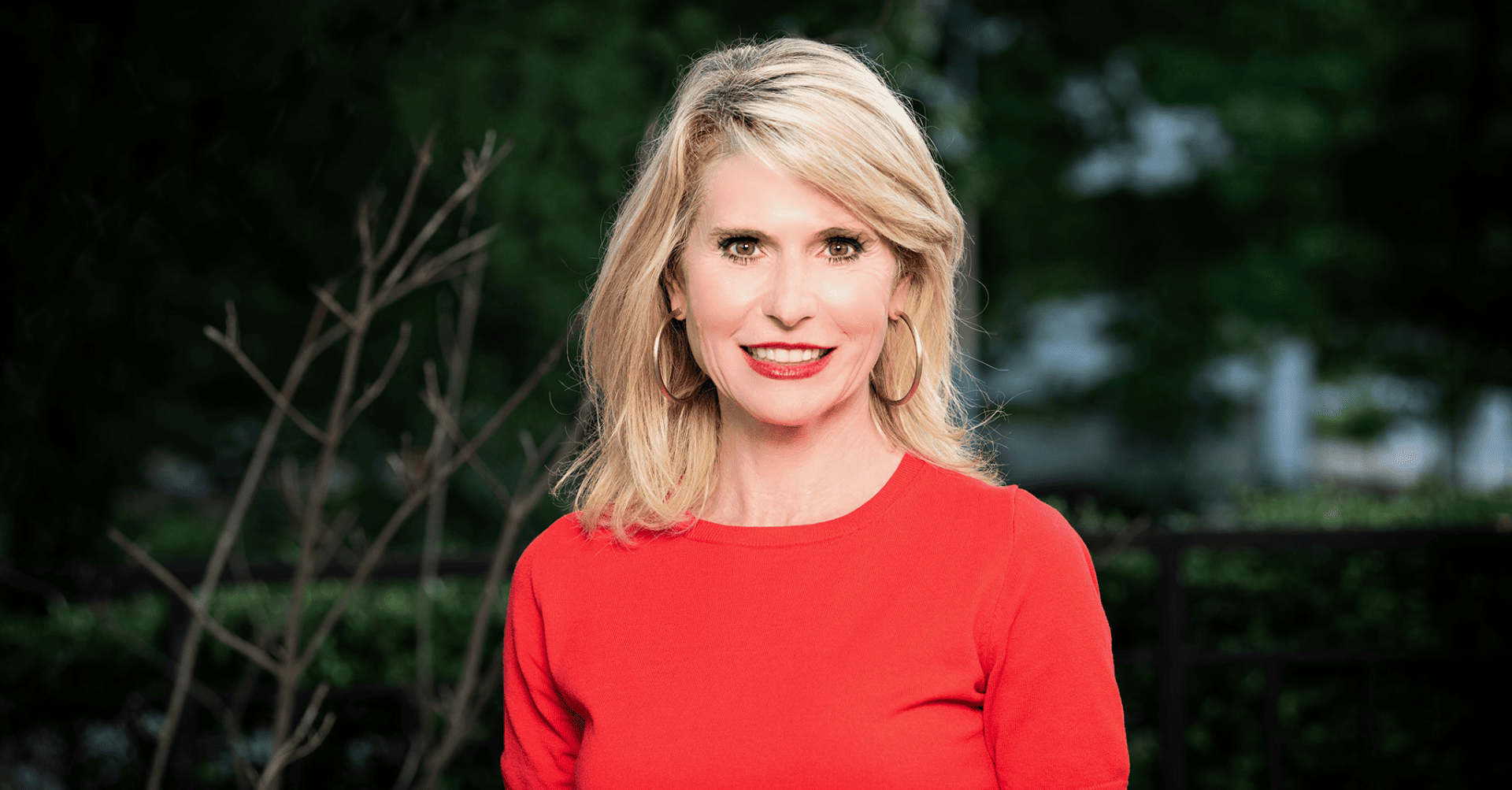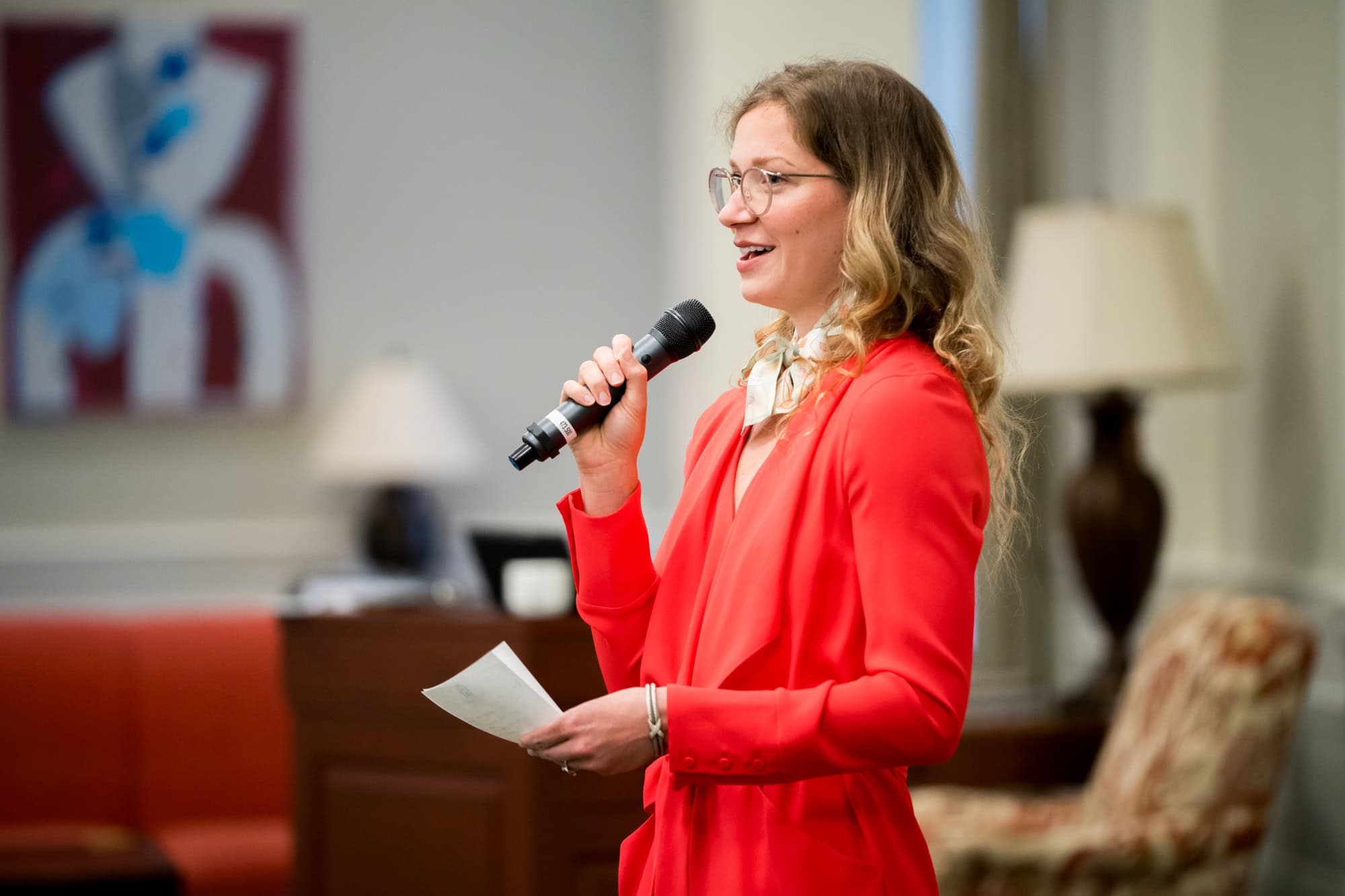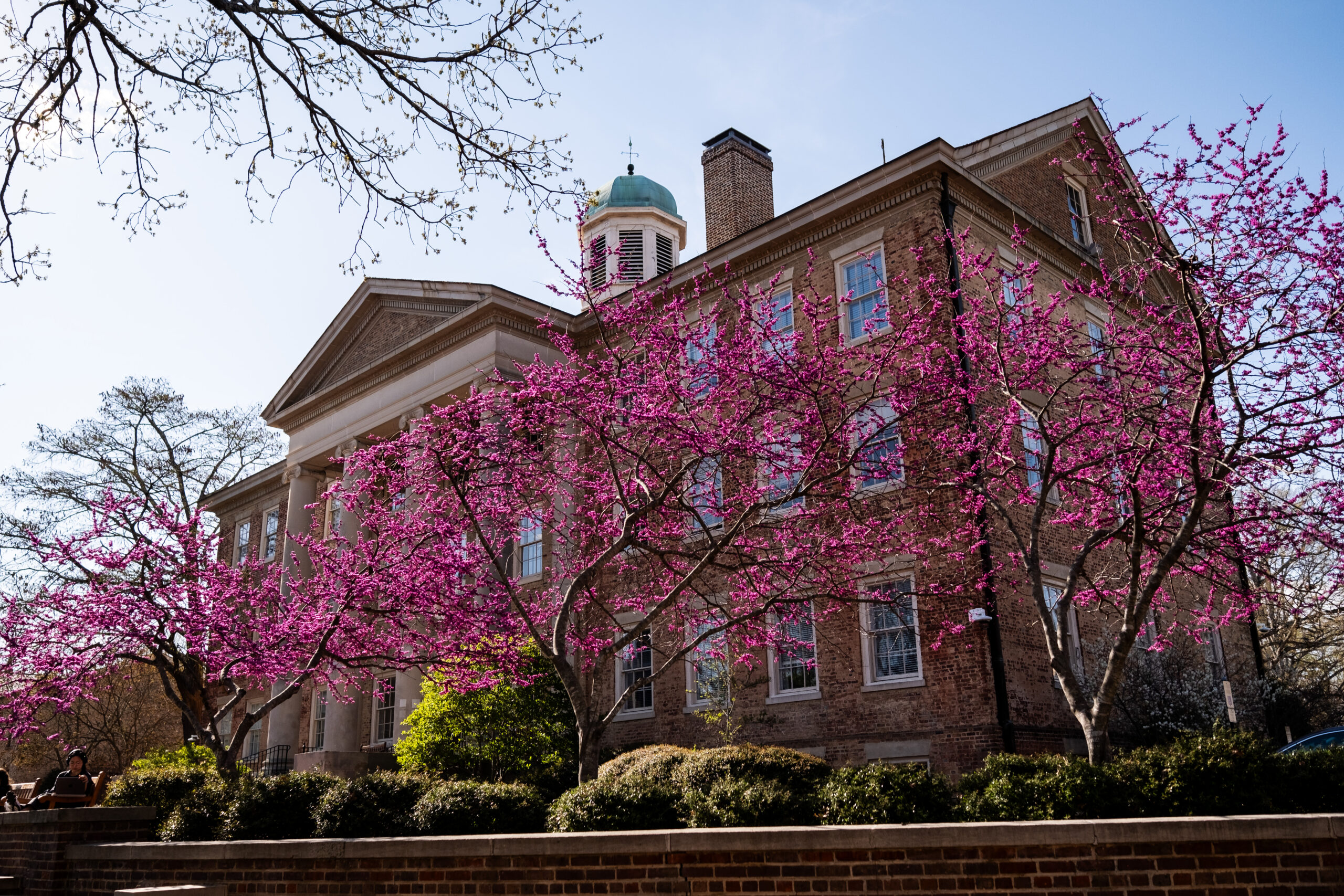
North Carolina Representative Kristin Dutrow Baker ’85 of District 82
Written by Laurelle Maubert ’25, Scholar Media Team member
The COVID-19 pandemic has illuminated the importance of strong leadership in healthcare and government. As a veteran physician and North Carolina General Assembly member, Representative Kristin Dutrow Baker ’85 is familiar with both worlds.
Baker is serving Cabarrus County (District 82) in her first term in the North Carolina House of Representatives. Prior to launching her career in politics, she spent twenty-five years as a physician, with board certifications in general adult psychiatry and child and adolescent psychiatry.
Appointed by Speaker Tim Moore, Baker serves as a chair of the House Health Committee and a chair of Appropriations, Health, and Human Services. She also served as co-chair of Moore’s select committees, including the COVID-19 Task Force and the Task Force on Community Relations, Law Enforcement, and Justice.
Baker has also been actively involved in her local community in Concord as a trustee for Cannon School and as a volunteer with Present Age Ministries, a nonprofit that combats sex trafficking of teen girls.
As a member of the Scholar Media Team, I had the pleasure of speaking with the alumna this semester about how her background and expertise as a doctor has shaped her perspective on the pandemic, now as a public servant.
Thanks for reading!
—Laurelle Maubert ’25
*This interview has been edited for length and clarity
(Laurelle)
You were sworn in to the North Carolina House of Representatives in March 2020, right as the pandemic began to really pick up speed, and you were appointed to the COVID-19 task force shortly after. What was it like to come into public office during a major public health crisis?
(Representative Baker)
Well, as you know, I had never run for office before, so I really didn’t have any specific expectations for what “being in office” would look like.
When I decided to run, I hoped my professional experience as a physician, along with my life experience of having been educated in the North Carolina public school system, would be helpful in addressing problems facing so many families and children across our communities.
Also, having had the good fortune of being a recipient of the Morehead–Cain Scholarship recipient, I’ve always been very mindful of a strong desire to give back to this state, whose University has provided me with so much. It seemed like a natural fit in that regard.
Obviously, no one saw COVID–19 coming. When that hit, it really drove home for me that I was in the right place at the right time. The woman who preceded me, Representative Linda Johnson, was an educator, so it did seem timely that I was in this position.
I greatly appreciated the appointment to the COVID-19 Task Force, which offered me the chance to participate virtually in regular meetings with community leaders and legislators across the state, with guidance and input from Secretary Mandy Cohen of the North Carolina Department of Health and Human Services. That forum also allowed me to connect with local leaders, both healthcare workers and those in business and other industries, as we were all trying to determine how best to respond to this novel and threatening challenge together.
But it was also very disorienting, quite frankly, because I had never met anybody currently serving in the General Assembly. I had gone to visit but not in my new role and not having been appointed.
I had to be onboarded virtually. I didn’t actually “know” any of the people that I was working with. I think my experience resonated with that of so many others who stepped into jobs and never actually met their colleagues in person until after the height of the initial COVID-19 crisis. I was grateful that the staff and my colleagues at the General Assembly were uniformly helpful and welcoming despite that lack of in-person orientation, and I hope others had similar experiences.
(Laurelle)
Throughout this pandemic, it seems like there’s been a complicated relationship between healthcare professionals and politicians (and the citizens they serve), which has presented some public health challenges. Have there been any moments in which you felt your experiences as a doctor and, now, as a politician, were at odds?
(Representative Baker)
I think that my background as a physician, and then generally as a scientist, makes me very much a data seeker. I would say that has been a challenge in a positive way. I think it’s something that maybe I bring, hopefully, to the legislature.
In my estimation, there’s a place for anecdotal stories and there’s a place for opinion. But when we’re making big decisions, whether it’s healthcare or some other consideration, I believe data matters. I think that, in that regard, it was positive that I could continue to say, “What is the data showing us?”
For instance, if people are worried that certain things are causing vaccine hesitancy, what does the data show us? What are the numbers for those who are being offered vaccines? What has made a difference in their choices?
I think driving our legislative response by data was a voice I tried to present, but I do think there were a number of conflicts and tensions. Secretary Cohen would say we’re “creating the plane as we fly it,” which is true. We couldn’t always wait for the data in ways that my professional experience would seek, but at the same time, we needed to make some decisions.
I think one of the other things that I would mention is that it brought to light something that is a necessary tension in our country. I think that the tension between individual freedoms and the greater good is a necessary and ongoing tension, and it’s an important place to dialogue. But I would encourage us to dialogue respectfully and not start off with, “You’re wrong.”
One of the reasons I went into this is that when I grew up, people could disagree and do so respectfully. I don’t see that very much anymore. It’s something that I hope I have demonstrated myself, and I think part of that has allowed some bipartisan legislation that I’ve been able to pass with my colleagues. So, I think that respectfully talking about the natural tension—of where individual rights end and safety begins—is important.
I have a different opinion than some people around me. I am not generally a proponent of vaccine mandates. However, I have received the vaccine. I think vaccines are very helpful. I think that science supports vaccines, and I’m very much a proponent of getting the message out there about how safe and effective it is.
One of the big battles that we were confronted with was whether healthcare workers should be mandated to have the vaccine, and I see that as different than a general vaccine mandate. To me, it’s extremely important to recognize what your ethos is, or why you exist and function. The reason for a hospital to exist is to keep people from dying, so healthcare workers are held to a different standard in terms of what we bring into the environment.
We as healthcare workers are already mandated to get the flu vaccine, the tuberculosis vaccine, and other vaccinations that aren’t mandated for the general population, but there’s a reason for that. I would say that’s an example of me living out the tension between individual rights, and, in this case, professional responsibilities.
(Laurelle)
Do you think there’s a way to heal the relationship between these communities, so that in the future, health crises can be more effectively handled and hopefully more lives can be saved?
(Representative Baker)
I think one of the things our leaders need to do locally, statewide, and nationally is to speak in a more unifying manner and speak in a more truthful manner. We don’t need to focus on extremes. We need to be honest about what data we have and what data we don’t have. We need to make sure that we’re making the best decisions based on what we know, and then being very mindful of what we don’t know.
As a physician, I strongly believe the best doctors are the ones who know what they don’t know, and I think that applies in life. Everybody wants to be healthy. This should bring us together. We’ve had the opportunities in this nation to develop a vaccine in record time, in a very safe way. We have incredible science, so we celebrate what we have and unify together.
Also, recognize that people are very different. People have medical conditions, they have religious issues, they may be pregnant, and we didn’t really know right away how the vaccine would impact a fetus. Let’s be honest about what we don’t know, but unify around what we do.
I honestly do think we have so much more in common than what sets us apart, and that can draw us together. Unfortunately, it’s a different era now. Our social media does better when people disagree. We need to demand otherwise—that we move toward positivity instead of supporting sensationalism, which divides us.
(Laurelle)
The pandemic has obviously changed just about every aspect of our lives, and we have been forced to make major adjustments. While it’s safe to say we all look forward to a post-pandemic world, COVID-19 has been such a major historical event, particularly for our healthcare and political systems, and its influence cannot be erased overnight. What do you think will be the lasting consequences of COVID-19, specifically for both healthcare workers and government officials?
(Representative Baker)
I think the positives of COVID-19 are what we’ve learned that we can do virtually. We’ve enhanced our virtual capabilities. I know we, as a state, are working hard on being able to use these COVID-19 funds to expand broadband to rural areas and make sure that people have access.
Along those lines, in terms of healthcare, we must use this experience with telehealth. I’m working hard to try and get legislation passed to support telehealth. We’ve shown we can do it. People get better care. They have better outcomes and there’s more continuity.
I think that there are also virtual opportunities to be able to meet in a political realm. We can meet with our constituents or stakeholders virtually instead of them having to come to Raleigh or us having to try and be in our district or travel somewhere else. I think the opportunities to unify and the opportunities to hear multiple voices have improved.
As a physician practicing in mental health, I certainly have concerns for the mental health ramifications, which we’ve seen. We predicted that the consequent isolation would markedly impacted our mental health, and it has.
As a psychiatrist who specializes in child psychiatry, I’m keenly aware that many issues with children are identified by adults in their environment and particularly at school. We saw diagnoses being missed, not identified, because children were not in school. Then there’s the struggle of parents working from home, not being set up to work from home, and not feeling equipped to teach their children from home and to support virtual learning.
I have a longstanding concern about our children missing that developmental period of education. That’s part of why we as a legislature created school opportunities for last summer. We required schools to provide six weeks of additional structured programs for both education and enhanced experiences for students, and offered supplemental pay for teachers, without mandating that any family or teacher must choose that option.
We wanted to mitigate the impact of lack of in-person learning on children’s educational and social development, especially because we know that it is those children who were already behind who are most vulnerable to lasting consequences of this experience.
The other thing that I think will be interesting to observe is the resultant decision by many different businesses to transition their workforce to a work from home option, and there’s a positive to that. People may get to choose what city they want to live in, and a number of people enjoy working from home.
But we must be aware of the tradeoffs. Humans are created for relationships, and our society has already experienced breakdown of community in many ways and for many different reasons. Are we going to replace that with something meaningful, or are we going to find ourselves in silos and vacuums and left to wonder why we feel so empty?
(Laurelle)
You touched on this earlier, but one thing that I found interesting specifically about your background as a physician is that you are a psychiatrist. The conversation around mental health has become more and more prevalent, especially during the pandemic. We know that the pandemic can take a large toll on our physical health, but as a psychiatrist, how do you think the pandemic is affecting our mental health?
(Representative Baker)
It’s definitely increased issues of anxiety, depression, substance abuse, and domestic abuse. Unfortunately, we were already underserving our population with mental health issues. Before the pandemic, we knew that at any given time, up to a quarter of our population meets criteria for a mental health or substance abuse disorder, and thirty percent of those with chronic medical illnesses have concurrent mental health illnesses. Over fifty percent of these people do not receive behavioral health care.
Not surprisingly, we have seen a significant increase in mental health issues, including overdoses and suicidal ideation in the data we have from 2020. There are a number of ways we can address this, and one of the most important for increasing access to skilled and effective intervention is through telehealth, which is why I am such a strong proponent.
(Laurelle)
The pandemic has been a big stressor in our lives, and young people seem to have been particularly affected by it. As we begin to transition back to a more “normal” world, I know there’s been a lot of stress among students, especially the return to in-person learning. Do you have any advice or words of wisdom for scholars out there who may be feeling worried about COVID-19?
(Representative Baker)
It’s been difficult, and it’s okay to say it’s been difficult. I think that the opportunity in this case is normalization. Young or old, we’re all unique people, but we’ve all been through a very singular experience together. When they study soldiers who have gone to war, at the end of the day, they take the biggest risks not for the overarching issue for which they are fighting but for their fellow soldier. In that regard, we’re all fellow soldiers in this.
As students, coming on to campus in an unforeseen time, realize that you have an opportunity to bond BECAUSE of the pandemic. You immediately have one obvious experience in common. Reach out with this knowledge. Reach out, help someone else. Together, imagine what you can do. Recognize we are truly in this together.
And if you are feeling anxious or sad, know you are not alone. Don’t be afraid to ask for help, for yourself or for someone you know. You can get help, your friend can get better, and the two of you will have a story of strength through adversity that you can share.
What story do you want to tell, and how can you reach out to one another to do so? Your story is going to be a really special one if you choose to embrace it.
(Laurelle)
Representative Baker, thank you so much.


